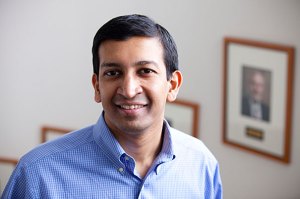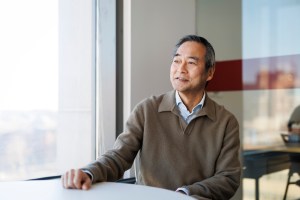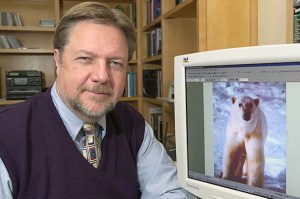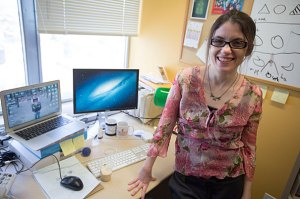Tag: Harvard
-
Science & Tech
Pinched minds
The accumulation of money woes and day-to-day anxiety leaves many low-income individuals not only struggling financially, but cognitively, says Harvard economist Sendhil Mullainathan. In a study featured in Science, he reports that the “cognitive deficit” caused by poverty translates into as many as 10 IQ points.
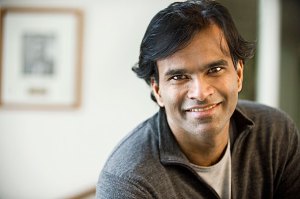
-
Campus & Community
David S. Landes, 89, dies
David S. Landes, a renowned historian whose work focused on the complex interplay of cultural mores and historical circumstance, died Aug. 17 at age 89.
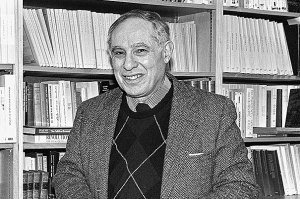
-
Science & Tech
One goal, many players
GoAmazon2014 is part of the Large Scale Biosphere-Atmosphere Experiment in Amazonia (LBA), the largest umbrella for research in the Amazon, which explores everything from social issues to scientific inquiries.
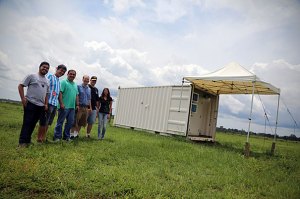
-
Science & Tech
Atop the Amazon rainforest
Harvard air chemistry expert Scot Martin is working with the Department of Energy, as well as several international partners, to track how pollution above the pristine Amazon rainforest is changing the climate.

-
Science & Tech
Popsicle Earth
A recently published paper says that during the last glacial maximum, more ice than previously thought covered the globe.

-
Science & Tech
The look of music
A new study by Chia-Jung Tsay, a musician and Harvard Ph.D., examines the power of visual information in evaluating classical music.
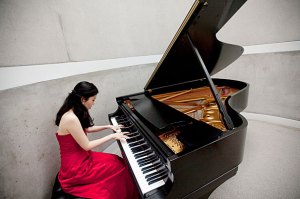
-
Health
Good health lasts later in life
Working from data collected between 1991 and 2009 from almost 90,000 individuals who responded to the Medicare Current Beneficiary Survey, Professor David Cutler has found that, even as life expectancy has increased over the past two decades, people have become increasingly healthier later in life.
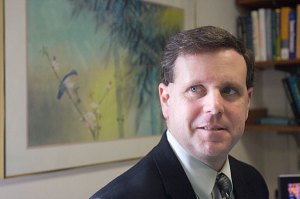
-
Health
Bacterial blockade
Harvard researchers have identified a pair of genes that appear to be responsible for allowing a specific strain of bacteria in the human gut to break down Lanoxin — a widely prescribed cardiac drug — into an inactive compound, as well as a possible way to turn the process off.
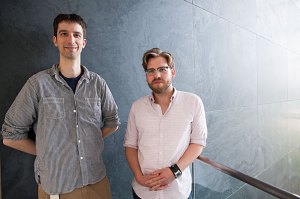
-
Health
New plan of attack in cancer fight
Harvard Professor Martin Nowak and Ivana Bozic, a postdoctoral fellow in mathematics, show that, under certain conditions, using two drugs in a “targeted therapy” — a treatment approach designed to interrupt cancer’s ability to grow and spread — could effectively cure nearly all cancers.
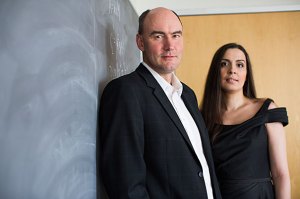
-
Science & Tech
Efficiency in the forest
Spurred by increasing levels of atmospheric carbon dioxide, forests over the past two decades have become dramatically more efficient in how they use water, a Harvard study has found.
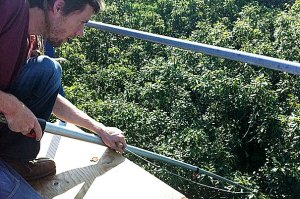
-
Campus & Community
Watching Spanish grow
The Instituto Cervantes Observatory of the Spanish Language and Hispanic Cultures in the United States at the Faculty of Arts and Sciences of Harvard University will be a center for tracking Spanish language growth.
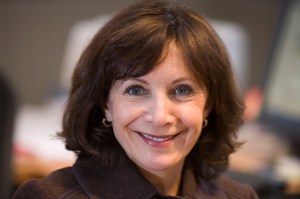
-
Science & Tech
Right down the middle, explained
The ability to throw an object with great speed and accuracy is a uniquely human adaptation, one that Harvard researchers say played a key role in our evolution.

-
Science & Tech
Map to renewable energy?
Researchers hoping to make the next breakthrough in renewable energy now have plenty of new avenues to explore — Harvard researchers this week released a database of more than 2 million molecules that might be useful in the construction of organic solar cells for the production of renewable energy.

-
Science & Tech
Reputation as a lever
Using enrollment in a California blackout prevention program as an experimental test bed, a team of researchers showed that although financial incentives boosted participation slightly, making participation in the program observable produced a threefold increase in sign-ups.
-
Campus & Community
Joy by the Yard
Snapshots of Harvard’s 2013 Commencement, a day marked by sunshine and warmth as well as rituals, honors, and good wishes.
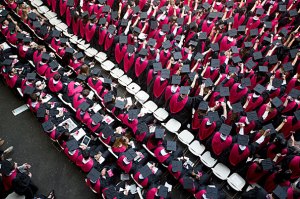
-
Campus & Community
He made the most of his opportunities
A biomedical engineering concentrator and Quincy House resident, Scott Yim’s senior project explored using naturally derived materials such as bamboo to help reduce the cost of medical devices and biomaterials in the developing world.

-
Campus & Community
Five named College Professors
Five faculty members have been awarded Harvard College Professorships: Joseph D. Harris, Steven R. Levitsky, Michael Puett, Jennifer L. Roberts, and Maryellen Ruvolo. The Harvard College Professorships are five-year appointments. They provide faculty with extra support for research or scholarly activities and a semester of paid leave or a summer salary.
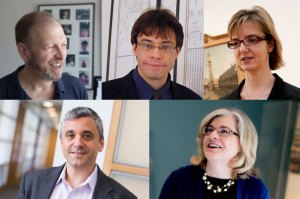
-
Campus & Community
New investigators named
Adam Cohen, professor of chemistry and chemical biology and of physics, and Hopi Hoekstra, professor of organismic and evolutionary biology and molecular and cellular biology, are among the 27 scientists nationwide to be appointed as investigators by the Howard Hughes Medical Institute.
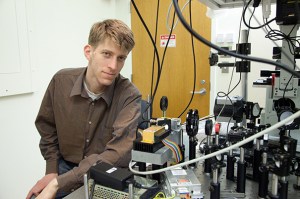
-
Campus & Community
Style and substance
The culmination of the Harvard Horizons initiative was a symposium in which eight Ph.D. students each offered five-minute presentations, styled on the popular TED talks, about a specific aspect of their current research.
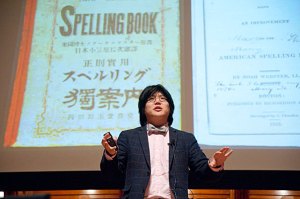
-
Health
‘Brainbow,’ version 2.0
Led by Joshua Sanes and Jeff Lichtman, a group of Harvard researchers has made a host of technical improvements in the “Brainbow” imaging technique.
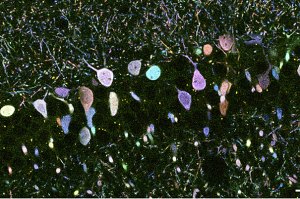
-
Health
Mourning that vexes the future
In a new paper, Professor of Psychology Richard McNally and graduate student Don Robinaugh say that while people suffering from complicated grief — a syndrome marked by intense, debilitating emotional distress and yearning for a lost loved one — had difficulty envisioning specific events in their future, those problems disappeared when they were asked to…
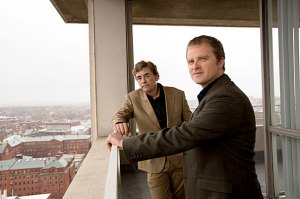
-
Health
Lower health care costs may last
A slowdown in the growth of U.S. health care costs could mean a savings of as much as $770 billion on Medicare spending over the next decade, Harvard economists say.
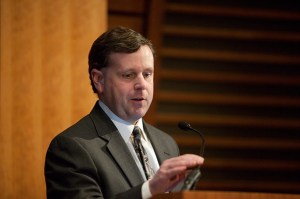
-
Campus & Community
Cambridge, Harvard, and MIT sign compact
The city of Cambridge, Harvard University, and the Massachusetts Institute of Technology have signed a “Community Compact for a Sustainable Future,” aimed at leveraging the intellectual and entrepreneurial capacity of the public-private sectors in Cambridge to build a healthy, livable, and sustainable future.
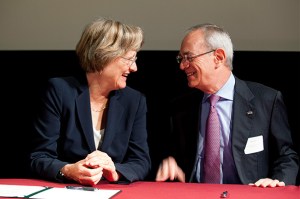
-
Nation & World
Holistically Crimson
Shaw Chen, treasurer of the Harvard Club of Shanghai, learned a lot from the College’s East Asian studies classes, but got plenty of experience outside the classroom as well.
-
Science & Tech
Projectile learning
Students in Matthew Liebmann’s “Encountering the Conquistadors” class recently got a feel for prehistoric life, trying their hands at an ancient weapon called the atlatl.
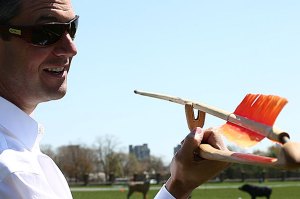
-
Science & Tech
Understanding student weaknesses
As part of an unusual study that surveyed 181 middle school physical science teachers and nearly 10,000 students, researchers found that the most successful teachers were those who knew what students would get wrong on standardized tests.
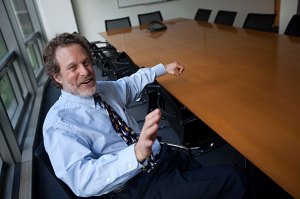
-
Science & Tech
Seeking fairness in ads
Latanya Sweeney, Harvard professor of government and technology in residence, wants to add a new factor to the weighting Google uses when delivering online ads, one that measures bias. In a new paper, she describes how such a calculation could be built into the ad-delivery algorithm Google uses.
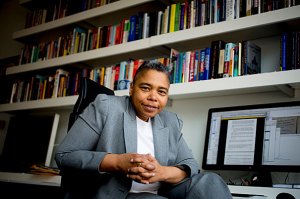
-
Campus & Community
Raj Chetty awarded Clark Medal
Harvard Professor of Economics Raj Chetty has been awarded the 2013 John Bates Clark Medal in recognition of his work, which combines empirical evidence and theory to inform the design of more effective government policies on everything from taxation to unemployment to education.
